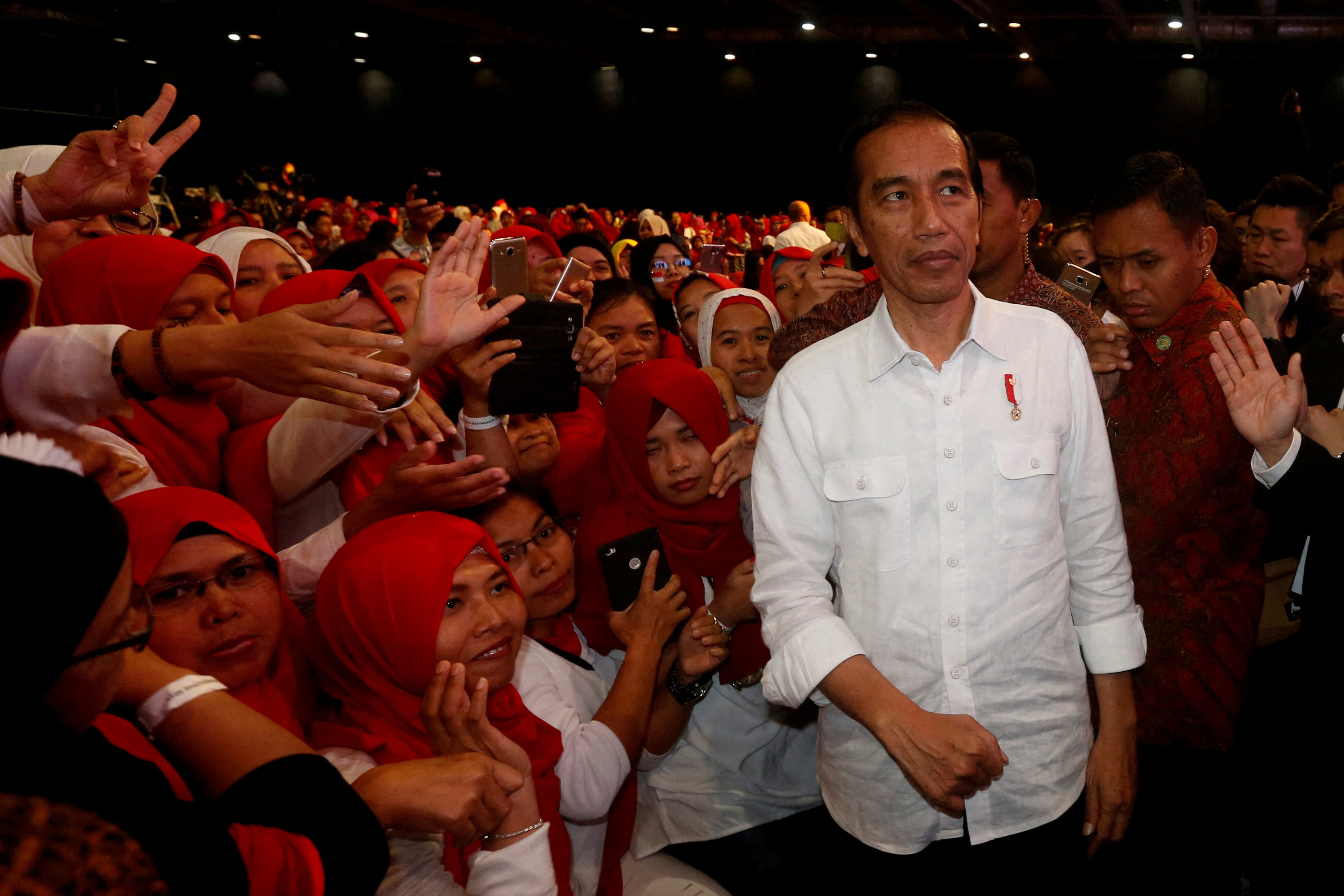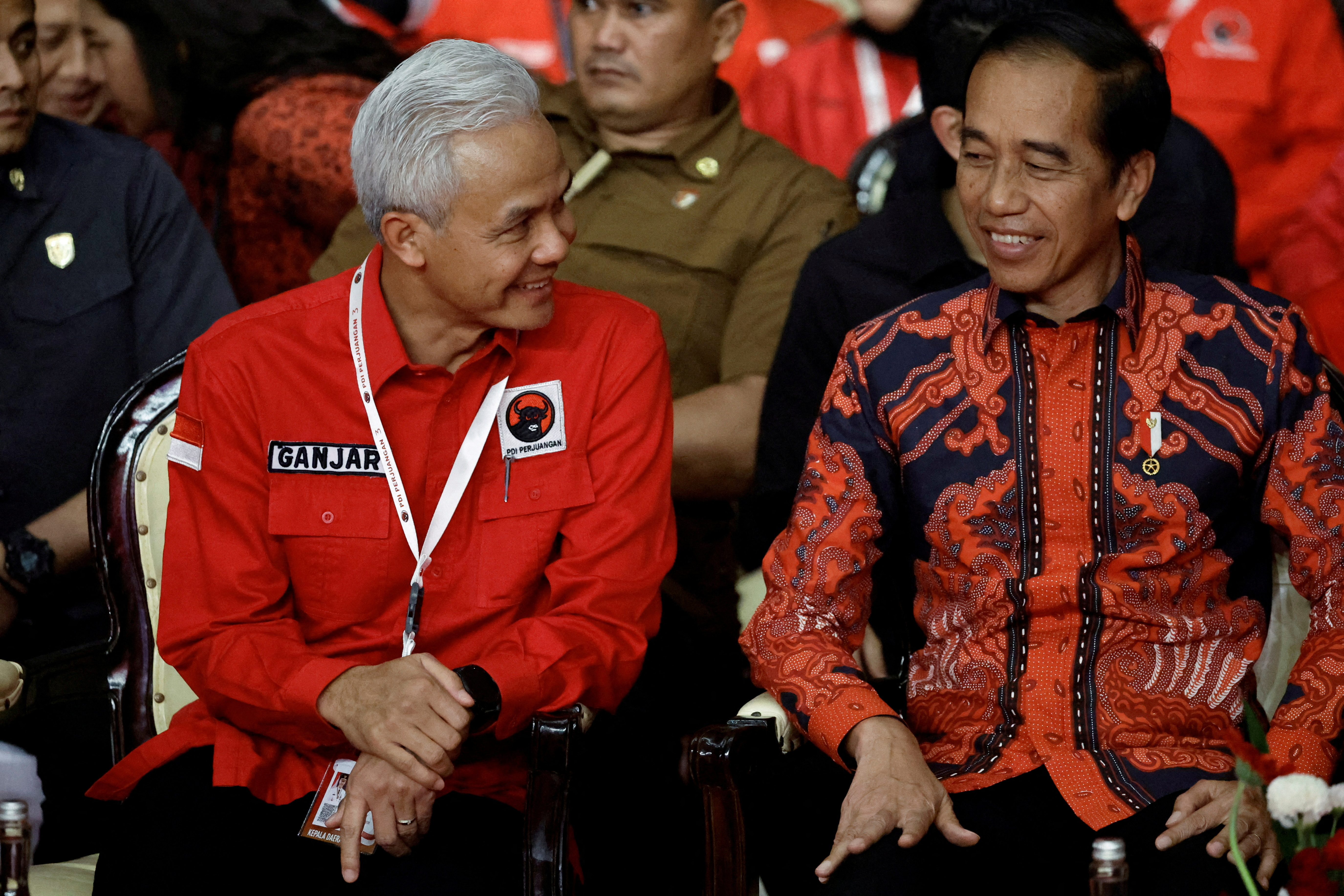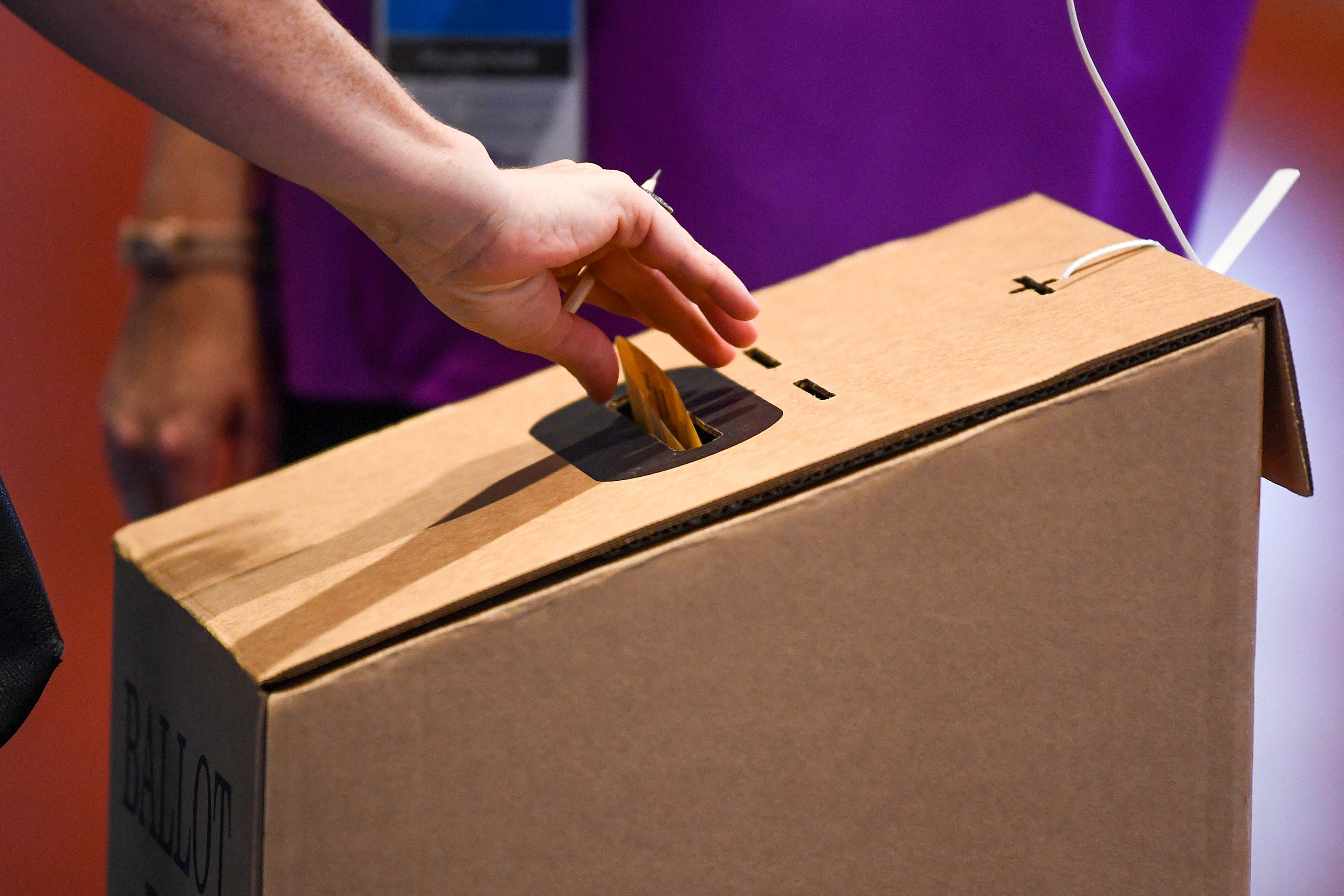Israeli intelligence failed to warn of or avert last weekend’s Hamas strike from Gaza, but U.S. intelligence—with more than 650,000 American citizens and significant military assets at risk on the ground in Israel—also failed to warn of prospective threats.
“The United States and by extension the Biden administration isn’t responsible for Israel’s intelligence failure,” says a senior intelligence official who requested anonymity in order to speak candidly with Newsweek. “But there are plenty of reasons why, purely in our own interests, we should have been on top of this. That we didn’t detect the attacks shouldn’t come as a surprise to anyone.”

Israel’s Iron Dome air defence system intercepts rockets launched from the Gaza Strip on October 11, 2023. Exchanges of fire are expected to continue as Israel presses a new offensive into the Palestinian enclave.
BASHAR TALEB/AFP via Getty Images
The reason, that official and others say, is that in the overall list of priorities, even in the Middle East, Israel ranks behind countries like Syria and Iraq where American troops are already engaged in combat. Hamas in particular, officials say, is mostly the responsibility of Israeli intelligence, and the United States relies upon Israel for most of its inside information on the group. where the United States is dependent. Third, the U.S. collects far more than it is able to analyze about Israel and elsewhere, an endemic problem, and one that has dogged the system for decades and is only getting worse.
Obviously, Israel is not some obscure country to U.S. intelligence: The political situation in Israel itself is a high priority for the CIA and other agencies. The Iranian threat to Israel and the region has become one of four national intelligence priorities for the Pentagon, especially as the military alliance between the two countries transformed in the first two years of the Biden administration. The United States has hundreds of troops and contractors in the country and maintains a half dozen secret bases. And constant military deployments and high-level visits formalize the internal mission of “force protection,” the Pentagon’s term used to refer to the program to safeguard U.S. personnel worldwide against potential terrorist attack.
“I’d hate to say that we missed the attack because of Ukraine, because I think we would have missed it anyway, but there are only so many resources to go around and not only is Ukraine taking up all that can be surged, but the Middle East has also lost much of its elevated urgency in recent years compared to other priorities,” says a second military intelligence officer. This official explains that much of the intelligence effort in the Middle East is dominated by those other far-flung wars. “I’m not saying the Middle East or Israel isn’t a priority,” the officer says, “but only that while we are engaged in a half-dozen counterterrorism operations from Afghanistan to Syria, they absorb the most.”

U.S. President Joe Biden confers with his National Security Advisor Jake Sullivan during a roundtable with Jewish community leaders in the Eisenhower Executive Office Building October 11, 2023 in Washington, DC.
Drew Angerer/Getty Images
A security briefing that didn’t mention Hamas
Still, the consistent failure to sense a growing threat is striking. Over Memorial Day weekend this year, U.S. and Israeli soldiers came together at Hatzor (Hatzerim) air force base, just 17 miles (28 km) from Gaza, for a first-of-its-kind military exercise. Codenamed Juniper Caracal, the training tested a new mortuary system for collecting and handling battlefield corpses.
“The U.S. and Israel are going to work more together in the future,” Army Captain Amanda Longoria, the officer in charge of the mortuary affairs team told the Pentagon’s own internal news organization at the time.
As Longoria and other Army reservists from New York and Delaware prepared for their trips to Israel, they were briefed on local security, particularly because the Pentagon calls Israel a “high threat” area. A gaggle of agencies contributed to painting the latest terrorist picture—Army and National Guard intelligence, Central Command, the Defense Intelligence Agency, the State Department, and the American Embassy in Jerusalem.
According to numerous government and military sources familiar with the intelligence, the briefings made no mention of anything brewing with regard to Hamas.
Nor did U.S. intelligence system report any suspicions of Hamas’ preparation for a potential attack during the Intrepid Maven wargame held by U.S. Marines, when they landed on Israel’s shores earlier this year. Nor did it report any unease during exercise Juniper Oak held in July, when some 6,400 Americans deployed to Israel. Nor when the Missouri National Guard exercised with the Israeli Home Front Command, practicing protection of the civilian population during wartime. Nor when the Middle East air commander U.S. Air Force Lt. Gen. Alexus Grynkewich visited Israel last month. Nor did intelligence detect anything brewing despite endless visits by White House and senior cabinet officials and members of Congress.
“Hamas is just not a priority, not that kind of priority,” the military intelligence officer says. “But keeping an eye on the situation inside Israel to protect our deployed troops,” he says, “I’m guessing someone dropped the ball.”
“In addition,” the officer says, “there are more than a half-a-million U.S. citizens in Israel at any time and their security is paramount as well.” The State Department says that there are some 650,000 U.S. citizens residing in or visiting Israel, almost 20 percent of them in Gaza and the West Bank.
While Washington largely depends on Israel to provide the nitty gritty intelligence on the Palestinian situation, its own responsibilities on the ground should have provided some tip offs.
The United States also quietly maintains a half-dozen bases in Israel, the most important being Site 512 in Be’er Sheva, 23 miles (38 km) from Gaza. Home to the American 13th Missile Defense Battery, the base is wholly focused on potential Iranian long-range missile attack. Over 200 Americans, three quarters of them contractors from companies like Lockheed Martin and Raytheon (RTX), operate the missiles, radars and communications link-up with Israel. The U.S. has other bases in Israel, many of which maintain arms and ammunition in gigantic warehouses, equipment meant for U.S. military forces, should they deploy to Israel in its defense. All of these bases are constantly on alert for possible terrorist attacks.
U.S. troops (currently the 56th Infantry Brigade Combat Team of the Texas National Guard) are present on the Sinai Peninsula as part of the Multinational Force and Observers (MFO), an international organization that maintains the treaty agreements between Egypt and Israel by providing a military force buffer. And back in the United States, the 42nd Infantry Division, centered on the New York National Guard, constantly assesses the security situation, being the primary unit that is earmarked in Israel war plans should the United States have to put boots on the ground.
Neither the MFO or the 42nd Infantry detected or received any intelligence indicating a possible Hamas attack, according to military sources. The NSA, which also eavesdrops on Israeli and Palestinian communications, unilaterally and together with its Israeli partners, did not detect preparations for the attack, the officials say.
In response to a request for comment on U.S. intelligence in the Mideast, a U.S. military official said it would not comment on specifics of intelligence sharing. “At this time, we are focused on providing our support to the people of Israel. We have a close partnership with Israel and always share timely intelligence about threats in the region with our partners.”
The 9/11 pattern
So why did U.S. intelligence fail to detect or predict the Hamas buildup and attack on Saturday? The answer is complex, but it follows patterns traceable in the 9/11 attack and other crises: too much information in the system, lower priority compared to other issues, over reliance on what local partners know and report.

Israeli soldiers ride on a Merkava tank as it drives to an undisclosed location in northern Israel near the border with Lebanon on October 9, 2023. Israel is expected to soon launch a ground invasion of the Gaza Strip.
JALAA MAREY/AFP via Getty Images
The senior intelligence official explains: “We aren’t very good at forecasting, especially when tanks aren’t sitting at the starting line, and too much of what we’re collecting is incredibly minute, useful mostly for military functions like targeting. And though all of U.S. intelligence is currently gaga for monitoring social media and so-called ‘open sources,’ there’s much that can be missed, especially when deception is involved, which may have been the case with Hamas.”
This senior intelligence official and others say that it mostly boils down to priorities. Though the U.S. spends well over $100 billion annually on intelligence collection and analysis around the globe, there are still limits to what is collected and where the resources are allocated. When multiple wars are being fought by the United States—from Ukraine to Somalia—supporting those ongoing conflicts is also the number one priority and takes up the vast majority of all resources.
The United States is also a superpower, and though collecting intelligence on Malawi is of far lesser priority than Israel, being everywhere stresses and absorbs untold reserves. There are only so many analysts, and much of what is collected by the United States that might bear upon Hamas and its internal activities—from eavesdropping to social media—is not necessarily always curated by humans, except with regard to indicators of nuclear war and other signs of immediate attack upon the United States.
Finally, multiple government insiders point out, intelligence failure amongst even those who are looking at Israel and Hamas often comes from looking in the wrong direction. “Even the FBI has a Hamas cell,” the senior intelligence official says, “but it looks for potential Hamas attacks in the United States.”
“None of this is an excuse,” the official adds. “I can assure you we’re looking now, now that it’s become a crisis. But will it eventually come out that we missed something, or that we didn’t make Hamas a high enough priority, or that we were hampered by too many other problems that we were looking at? Absolutely, but that also makes the Hamas failure humdrum rather than shocking.”
The post How the U.S. secret presence in Israel missed the Hamas attack first appeared on The News And Times – thenewsandtimes.com.















